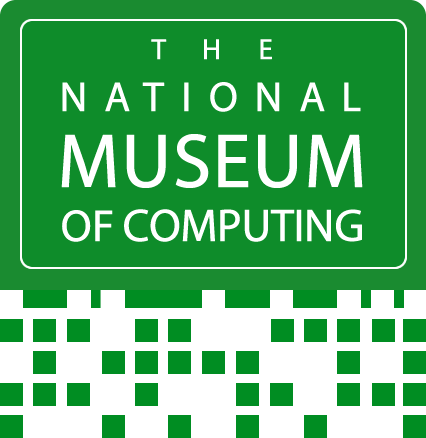Mike Woodger, British Computer Programming Languages and Software Engineering Pioneer, named TNMOC Honorary Fellow
/Mike Woodger, British Computer Programming Languages and Software Engineering Pioneer, named TNMOC Honorary Fellow
Bletchley Park, 14th April, 2023: The National Museum of Computing (TNMOC), home to the world’s largest collection of working historic computers, today announced that pioneering computer scientist Mike Woodger - a driving force behind modern computer programming languages and software engineering - has been made a TNMOC Honorary Fellow for his pivotal role in helping to shape modern British computing.
With a career spanning decades, Mike - who celebrated his 100th birthday last month - was a key contributor to the development of two landmark computer programming languages, Algol 60 and Ada. He and his fellow contributors created concepts to enable the construction of safe and reliable software systems and to make it easier for one programmer to build on the work of another, composing complex software systems out of reusable modules.
Among Mike’s many accomplishments:
Enabled the practical application of Pilot ACE, one of Britain’s first digital computers that was designed by Alan Turing and built at The National Physical Laboratory. Mike worked closely with Turing on ACE and wrote a suite of sophisticated mathematical routines to solve difficult scientific problems. His routines allowed application programmers to code for the problem they wanted to solve - helping them work faster and more efficiently.
Part of the team that created Algol 60. This was the first programming language to introduce the concepts of structured programming and procedures, such as data types and recursion, found in popular languages today like Java and Python. These features help developers to build safe, secure and reliable large-scale software systems.
Led the design of Green that became Ada - an advanced programming language deployed widely in mission-critical, embedded systems and adopted as a standard by the US Department of Defense. Ada added concepts to the idea of Algol that included building large systems out of reusable software modules and the ability to execute and coordinate multiple tasks concurrently. These ideas are present in all today’s major programming languages.
Became known as a “technical writing artist” following his work as a principal author and editor of the defining documents for both Algol 60 and Ada.
Andrew Herbert, TNMOC chair, said: “Mike has transformed the face of modern programming. His early work on mathematical routines for one of Britain’s first digital computers was critical to its success. His ideas, developed from Algol to Ada on software architecture and development methodology, put us on the path towards high-level language features such as modules, object orientation and concurrent execution pervasive in cloud computing, AI and other new fields”.
“Mike has worked collaboratively with colleagues for decades to resolve some of the thorniest challenges in software to achieve cleaner structure and ease of expression - ideas forged on consensus that have stood the test of time. We want to recognise Mike as a programming tour de force.”
Jacqui Garrad, TNMOC director, said: “TNMOC celebrates the story of modern British computing through technologies and the people behind them. Few exemplify that better than Mike. From his earliest days collaborating with the great Alan Turing, to working on Algol 60 then internationally on Ada with the US Department of Defense - which is running on machines in our own incredible collection - Mike is an inspiration to those who believe in our power to transform technology. We’re delighted he has agreed to become a TNMOC Honorary Fellow.”
TNMOC will present Mike with a trophy marking his induction as an Honorary Fellow on April 28, 2023, with a live event from his home. Public and media are invited to join the event via Zoom on the TNMOC campus at Bletchley Park, which will involve a live Q&A with Mike. This hour-long event starts at 14:30. You can book via Eventbrite, here.
Notes to the editor
TNMOC’s Honorary Fellowship program was created to recognise the contributions of those who have advanced the science, technology, practice and public awareness of computing, or those who have diffused computing knowledge through education and writing.
Fellows include Raspberry Pi inventor and co-founder Eben Upton and executive director of Raspberry Pi communications Liz Upton, veteran BBC technology correspondent Rory Cellan-Jones, and Professor Brian Randell whose research led to wider public recognition of the importance of Colossus in code breaking at Bletchley Park during the Second World War.
About The National Museum of Computing
The National Museum of Computing (TMNOC) brings to life the history and continuing development of computing for the enjoyment and benefit of all. The museum combines a distinctive approach to engagement with an emphasis on British computing heritage and ongoing innovation. TNMOC acquires, conserves, restores and rebuilds historic computing machinery – we want people to connect with our exhibits and key to that is our display and demonstration of historical systems. The museum runs a highly successful learning programme for schools and colleges and introduces young people to computer coding to help inspire the next generation of computer scientists and engineers. The museum also runs a popular program of festivals, lectures, interpreted displays and interactive events.




